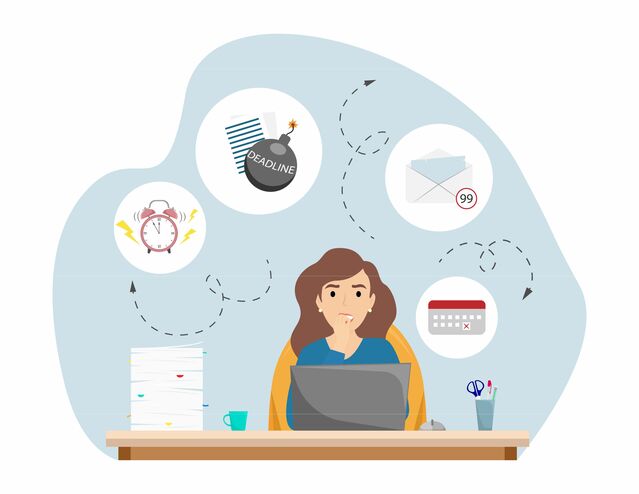
Psychology
Things No One Told Me About Pursuing a Psychology Ph.D.
Conversations between a first-generation Latina advisee and her advisor.
Posted October 3, 2020 Reviewed by Abigail Fagan

This is the first of a multi-part series (see part 2, part 3, part 4, part 5, and part 6) developed with Jessica Montoro, a fourth-year doctoral candidate in Developmental Psychology at the University of Michigan. Jessica studies how cultural and social class factors influence Latinx youth and college students' ethnic-racial identity, ethnic-racial socialization, and school/college experience.
Several of the topics discussed are specific to pursuing a Ph.D. at a research-intensive institution and in a full-time, fully funded program. With that in mind, a “dialogue” is shared between an advisee (Jessica) and her advisor (Debbie) to provide two perspectives on a range of different topics. We don’t claim to have these figured out, but we think these posts could be used as springboards for conversations between mentors and mentees.
#1: It's not a part-time job. It's a lifestyle change. (Isn’t it?)
Advisee: Gone were the undergrad days of dedicating a couple of hours to your homework, pulling an all-nighter, and still getting that A. In my experience of graduate school at a research institution, it is expected that your research projects should take precedence over pretty much any other life priority. How much of a priority your research is varies by research advisor, doctoral program, department, and institution (so talk to current students!) Whether or not you are answering an email from a colleague, running analyses, or collecting data, your research will seep into every domain of your life. Every. One. I have found that this includes in the shower, while washing dishes, or working out.
Ultimately, pursuing a Ph.D. can feel like a 24/7 job and you should ensure you are prepared (or at least aware) of this reality. Often, you are expected to work through the summer and through holidays. As my friend Maira likes to remind me, graduate school is like show-biz: The show must go on, rain or shine. Many times I have asked myself “Must the show go on?” and “At what cost?!” This is not to say I support this norm, but I have absolutely struggled with navigating this norm. As a first-year doctoral student just trying to survive academia during a Michigan winter, I regrettably leaned into this norm. I worked long hours, thought sleep was for the weak, and I would do whatever it took to get my work done.
Ultimately, I realized that my overworking was yet another attempt to prove myself to my advisors and my colleagues. This wreaked havoc on my mental and physical health, and at times even broke my spirit. Now in my fourth year, it is clear to me that I do not endorse this norm. Establishing boundaries around my workday, especially when working from home amidst a pandemic, is one of the best things I could have done for myself and my career. Besides, show-biz will always be there in the morning.
Advisor: Yes, pursuing a Ph.D. is not like your undergrad days. One important difference is you are becoming a producer of scholarship rather than a consumer. And this means more dedicated effort toward identifying where and how you can make your original contribution to your field. What matters more than grades is your mastery of ideas, theories, and methods.
From my perspective, however, research should not dominate your life. To be sure, I have struggled with setting proper boundaries, at times better and at others worse over the course of my career. But the truth is, part of the reason for this back-and-forth is that I believe my work can be used to advance social justice in the world, and that deeply motivates me. I know I’m not alone in this.
Also, it is an enormous privilege to be able to be paid for learning and having ideas (and working with others to do the same), which I would do anyway! It is also true that “aha” moments happen serendipitously. Yet I think we need to step back and ask ourselves, “Is the cost of having the “show go on” actually my own physical or mental health? And if so, is that a sacrifice I should be asked to make?” My answer to that is no. The ongoing pandemics we are grappling with collectively have really put all of this into perspective, and I wonder what it would take to be able to take an approach to doctoral education that prioritizes well-being rather than producing “at all costs.”

